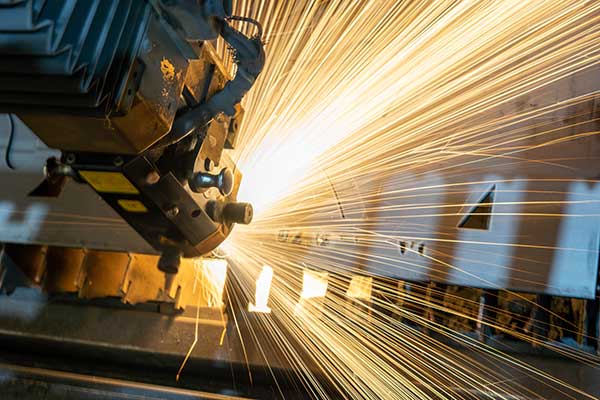U.S. manufacturers interested in sponsoring a foreign national worker need to carefully plan their H-1B visa sponsorship.

By George Ernst
One of the biggest obstacles when hiring foreign national labor is the fact that U.S. immigration law has not been meaningfully updated in nearly 30 years. This leaves U.S. manufacturers trying to navigate an immigration system that was built for 20th-century employment with 21st-century employment needs.
Unless Congress passes legislation to increase the number of H-1B visas or makes other changes to existing immigration law to better match current labor needs, U.S. manufacturers must carefully plan to traverse immigration sponsorship for H-1B workers and work with immigration counsel on contingency plans.
Before beginning the H-1B sponsorship process, U.S. manufacturers may want to first try to take advantage of the F-1 Student – Optional Practical Training (OPT) employment authorization program. The OPT program allows U.S. employers to hire a foreign national who has recently graduated from a U.S. college or university for a period of up to one year. Because the OPT work authorization is administered by the U.S. college or university, the employer is not obligated to pay attorney or legal fees. If the employer also uses E-Verify, agrees to certain requirements under the OPT program and the foreign national worker graduated in a STEM field, it may be possible for the foreign national to apply for an additional two years of work authorization, for a total of three years. Once an employer hires a foreign national worker in the OPT program and would like to continue that foreign national’s work authorization, it is highly recommended that the employer retains an experienced business immigration attorney to devise a strategy for continued work authorization.
One method to sponsor a foreign national worker is the H-1B visa program, which allows employers to sponsor foreign national workers in “specialty occupations.” A “specialty occupation” is defined as “an occupation which requires theoretical and practical application of a body of highly specialized knowledge in fields of human endeavor including, but not limited to, architecture, engineering, mathematics, physical sciences, social sciences, medicine and health, education, business specialties, accounting, law, theology and the arts, and which requires the attainment of a bachelor’s degree or higher in a specific specialty, or its equivalent, as a minimum for entry into the occupation in the U.S.” 8 C.F.R. 214.2(h)(4)(ii).
For employers looking to fill roles in IT, robotics, automation and other highly technically minded positions in manufacturing, the H-1B program should be a great fit. However, U.S. manufacturers may not want to limit sponsorship to only these traditional STEM fields, as the H-1B program can also be used for business specialties and accounting positions. To have a successful H-1B submission, it is critically important to work with an immigration attorney to assess the nature of the position and ensure that it meets the regulatory requirement of a “specialty occupation.” The most common reason for a denial is when a position does not meet that requirement.
The H-1B visa program allows an employer to sponsor a foreign national worker for an initial period of up to three years, with the ability to extend sponsorship another three years for a maximum of six years – though there are provisions that allow for extensions beyond this six-year maximum. Additionally, the H-1B visa program allows employers to sponsor full-time and part-time workers.
The biggest barrier to entry for the H-1B visa program is that the number of available H-1B visas is woefully inadequate based on the current demands of the U.S. economy. Indeed, at the beginning of each U.S. fiscal year (which begins Oct. 1) there are only approximately 65,000 new H-1B visas for Cap-Subject employers, with an additional 20,000 set aside for new H-1B visas for Cap-Subject employers for foreign nationals who have graduated from a U.S. college or university with a master’s degree or higher. Most private employers will be considered a Cap-Subject employer.
This means that U.S. manufacturers interested in sponsoring a foreign national worker need to carefully plan their H-1B visa sponsorship needs as early as possible and begin working with an attorney to determine the best path forward. Because of the high demand for H-1B visas, the U.S. government is using an H-1B lottery registration program that permits employers to submit a registration for a prospective employee, typically during the first two weeks of March. If the employer is selected in the H-1B registration lottery, then the employer is permitted to file the H-1B petition, typically between April 1 and June 30. If the employer’s H-1B registrations are not selected, then the employer will not be permitted to submit an H-1B petition for that particular year, and U.S. manufacturers should work with immigration counsel to determine other potential visa sponsorship options.
George Ernst is a partner at Hall Booth Smith’s Little Rock office, where he focuses on immigration, international business, and labor and employment matters. Also proficient in German, he has over a decade of experience representing multinational corporations across various industries. He can be reached at gernst@hallboothsmith.com and (501) 503-4446.
Scott Ellyson, CEO of East West Manufacturing, brings decades of global manufacturing and supply chain leadership to the conversation. In this episode, he shares practical insights on scaling operations, navigating complexity, and building resilient manufacturing networks in an increasingly connected world.